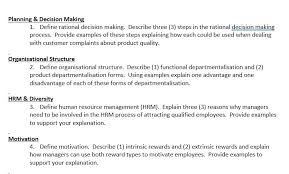Examples of Impulsive Decisions
Impulsive decisions are choices that are made quickly without much thought or consideration of the consequences. They are often made based on emotions, desires, or external influences rather than careful reasoning. Here are some common examples of impulsive decisions:
- Impulse buying: Purchasing items on a whim without considering if they are necessary or within budget.
- Sudden career changes: Quitting a job or changing careers abruptly without proper planning or evaluation.
- Reckless driving: Making dangerous driving maneuvers without regard for safety or traffic laws.
- Spur-of-the-moment travel plans: Booking a trip without researching destinations, costs, or logistics.
- Instant emotional reactions: Reacting impulsively to situations without taking the time to think through the consequences.
While impulsive decisions can sometimes lead to positive outcomes, they often result in regret, financial loss, and other negative consequences. It is important to recognize when you are making decisions impulsively and take steps to slow down, consider your options, and make more informed choices.
By being aware of the potential pitfalls of impulsive decision-making and practicing mindfulness and self-control, you can avoid unnecessary risks and make better choices for your future.
Understanding Impulsive Decisions: Key Questions and Examples
- What is a person who makes impulsive decisions?
- What is an impulsive decision?
- What are impulsive actions?
- What are common examples of impulse?
- What causes impulsive behavior in adults?
What is a person who makes impulsive decisions?
A person who makes impulsive decisions is often described as someone who acts hastily without thoroughly considering the consequences of their actions. They may prioritize immediate gratification or emotional impulses over long-term planning or rational thinking. Individuals who frequently make impulsive decisions may struggle with impulse control, self-regulation, and delayed gratification. This behavior can lead to a variety of challenges in personal and professional life, including financial difficulties, strained relationships, and missed opportunities for growth and success. It is important for individuals who tend to make impulsive decisions to reflect on their decision-making patterns and work towards developing healthier habits that prioritize thoughtful consideration and strategic planning.
What is an impulsive decision?
An impulsive decision is a choice made hastily without careful thought or consideration of the potential consequences. It often occurs in the spur of the moment, driven by emotions, desires, or external influences rather than rational thinking. Examples of impulsive decisions include impulse buying, sudden career changes, reckless driving, unplanned travel arrangements, and instant emotional reactions. While impulsive decisions can sometimes lead to positive outcomes, they can also result in regret and negative consequences. It is important to recognize impulsive decision-making tendencies and strive to make more thoughtful and informed choices for better long-term outcomes.
What are impulsive actions?
Impulsive actions are spontaneous behaviors that are carried out without careful thought or consideration of the consequences. These actions are often driven by emotions, desires, or external influences, leading individuals to act on impulse without fully evaluating the potential outcomes. Examples of impulsive actions include making sudden purchases, reacting impulsively to situations without thinking through the consequences, and engaging in risky behaviors without considering the long-term impact. It is important to be mindful of impulsive actions and take steps to pause, reflect, and make more deliberate choices to avoid potential regrets or negative repercussions.
What are common examples of impulse?
Impulsive decisions are actions that are taken without much forethought or consideration of the consequences. Common examples of impulsivity include impulse buying, where individuals make purchases on a whim without assessing the necessity or affordability of the item. Another example is impulsive eating, where one indulges in unhealthy foods without considering the long-term effects on their health. Additionally, impulsive decision-making can manifest in behaviors such as sudden job resignations, reckless driving, or spontaneous travel plans. These examples highlight how impulsivity can lead to hasty choices that may have negative repercussions if not carefully considered.
What causes impulsive behavior in adults?
Impulsive behavior in adults can be caused by a variety of factors, including emotional states, environmental influences, and underlying psychological conditions. Stress, anxiety, and strong emotions such as anger or excitement can lead to impulsive decision-making as individuals may act on their feelings without considering the consequences. Additionally, external factors like peer pressure, social media influence, or substance abuse can contribute to impulsive behavior in adults. Certain mental health disorders, such as ADHD or borderline personality disorder, are also known to be associated with impulsivity. Understanding the root causes of impulsive behavior is crucial in order to address and manage it effectively for better decision-making outcomes.




